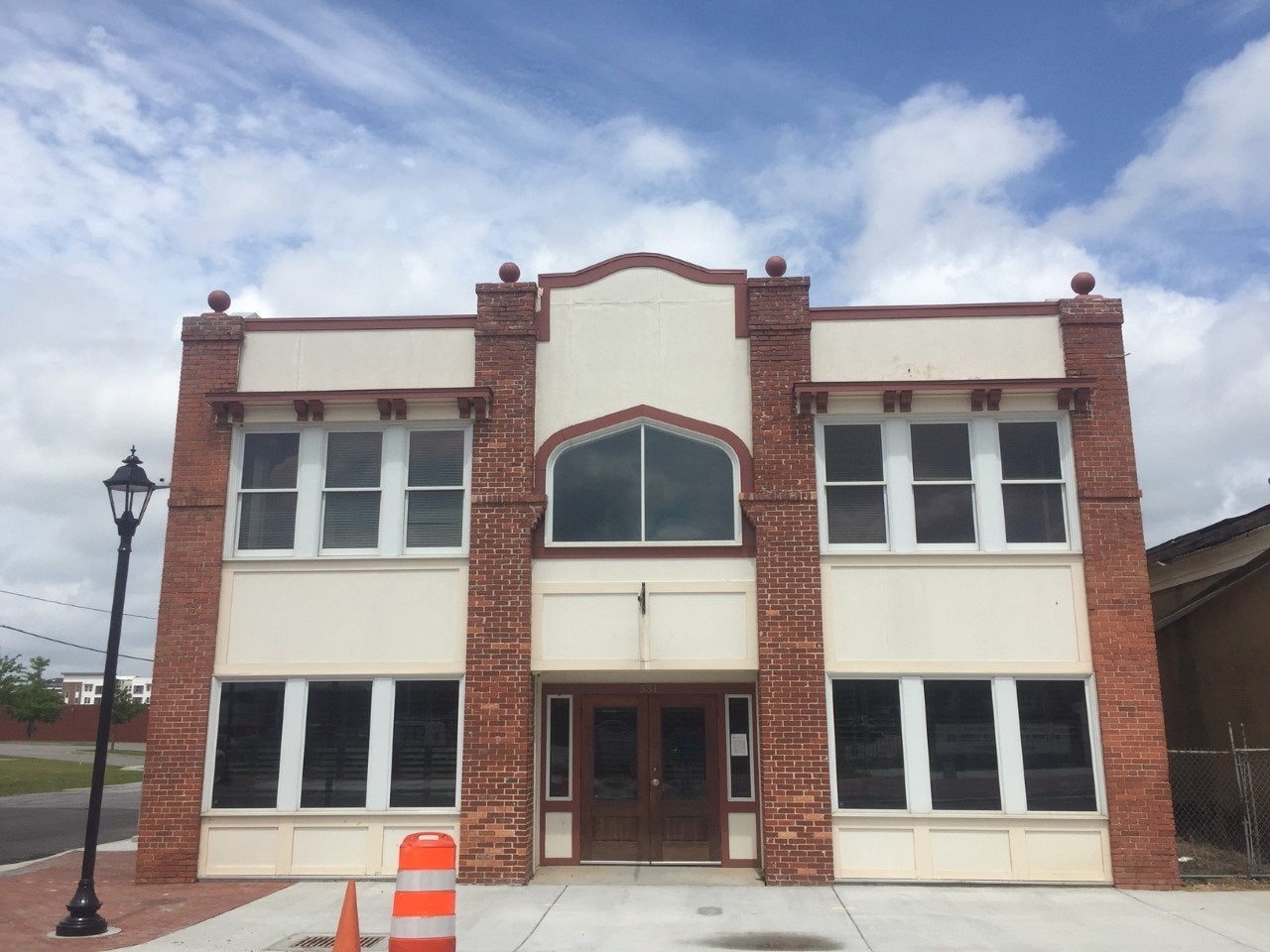Editor’s note: This story contains racist song lyrics that some may find offensive. Please note that renowned African-American composer Scott Joplin composed the piece in 1902 and performed it for African-American audiences. The racial context, times and standards of the period were different from today’s and allowed such a work to be performed with little comment.
A mixed-used professional and residential building on James Brown Boulevard today houses an attorney’s office as well as several apartments, but it was once ground zero of African-American culture and arts in Augusta, the Palace Theatre and Red Star Cafe.
In the 1920s, when the Palace Theatre was built, racial segregation was in full swing, and so was a new type of American music: jazz.
Something You Might Not Have Known: The Ezekiel Harris House
From the jazz era through the Civil Rights era, African-American Augustans were not allowed at many mainstream entertainment venues. The venues that did permit African-Americans forced them to watch the entertainment from the balcony and to use the segregated fountains and lavatories.
The Palace Theatre, though, was built specifically to serve the African-American audience. It was built about the same time as Broad Street’s Modjeska Theatre, and the design followed in a toned-down version of the Modjeska’s Persian-Moorish architecture, a style that was popular in the period.
The Palace Theatre was located just across the street from what was the Augusta Union Train Station on 8th Street and next to the white-only Plaza/James Hotel. However, the stodgy Plaza Hotel offered only rooms and a restaurant. The Palace offered so much more, and it was available exclusively to African-Americans.
The Palace had hotel rooms, a restaurant and a theatre where vaudeville shows, comedy performances, silent movies and jazz concerts were held daily.
One very curious performance was advertised as Bob White’s “Dark Town Swells,” a ragtime act that is a testament to how much racial mores have changed in the last century. “Dark Town Swells” could not be performed anywhere today without protest.
[adrotate banner=”22″]
Keep in mind that the “Dark Town Swells” performers and audience were all African-American, and standards and culture were different in the 1920s. African-American performers sang these lyrics for their audience:
“I attended a ball last Thursday night
Given by the dark town swells
Every coon came out in full dress alright
And the girls were society belles
The hall was illuminated by electric lights
It certainly was a sight to see
So many colored folks there without a razor fight
‘Twas a great surprise to me”
The Palace/Red Star thrived in the 1930s, and gambling may have been a big part of the operation. The venue was reputed to have been raided and shut down multiple times due to gambling, and its owner at the time was considered to be the leader of an early informal lottery betting enterprise known as “The Bug.”
The late Jim Brennan of Augusta (1920 – 2011) recalled to this writer years ago that he serviced the Frog Hollow area of downtown as a newspaper boy for the Augusta Chronicle in the 1930s. He recalled African-American families in some of the poorest areas spending a nickel on the newspaper everyday to get the stock market numbers so they could bet on a gambling scheme referred to as “the Bug.”
[adrotate banner=”54″]
If the players of “the Bug” guessed the correct three middle digits of the stocks traded the previous day, then they won the prize when verified with the daily stock market report published in the Chronicle. Bets were placed the day before the issue of the paper came out.
Winners of this non-official lottery could redeem their prizes at the Palace Theatre. However, Brennan remembered that hardly anyone ever won the prize.
“Those folks would buy the newspaper from me and toss away every page other than what they called the Bug Page. It was like they were buying a lottery ticket today,” he said.
In the 1960s, the Red Star continued on as a spot for African-American luminaries to congregate when they came to Augusta to perform. More often than not, they would encounter James Brown.
Another legend (and this one may or may not be true) revolves around singer and pianist Ray Charles, who was to perform in March 1961 at the Bell (then Municipal) Auditorium. While it is documented that Charles refused to play to a segregated audience at the Bell and walked out of his contract, the next part is pure lore, but could easily be the truth.
According to legend, Charles left the Bell with a full audience still sitting and waiting — in vain — for him to come on stage and perform. Instead, he went over to the Red Star, where he ordered dinner.
Sensing some real danger, Charles’ manager urged him to go with him immediately and make tracks out of town. It is said that Charles responded, “I’ll go when I am ready. I’m gonna finish my fried chicken.”
[adrotate banner=”19″]
In the 1970s, the Palace/Red Star was shuttered, like so many historic buildings downtown. By the 2000s, the building was a disaster. The roof was caving in and the second-floor was caving into the ground.
However, the building was saved.
Christopher Booker and Associates architectural firm was brought in to breathe new life into the building. According to the firm’s website, the company had to work from a shell as even the facade had collapsed into the street, but they managed to rework the building to operate in the 21st century.
From the outside, the old Palace Theatre looks much as it did in its heyday.

Current tenant M. Austin Jackson, attorney, said he was drawn to the building due to its location, but he also respects the history of the facility. Pictures of other historic Augusta landmarks taken by Jackson himself decorate the lobby.
“I like the fact that the building is modern, but they really tried to preserve the character of the original building,” Jackson said.
Something You Might Not Have Known: Eli Whitney
The Palace/Red Star is one of those surviving structures that has spanned a century, with many legends crossing its threshold and all kinds of stories about what once went on within its walls.
Standing in the lobby of what looks today like a quaint nod to the past, one can almost hear the jazz music emanating from a long ago stage.
And that is something you might not have known.
Scott Hudson is the Editorial Page Editor of The Augusta Press. Reach him at scott@theaugustapress.com.
[adrotate banner=”45″]















